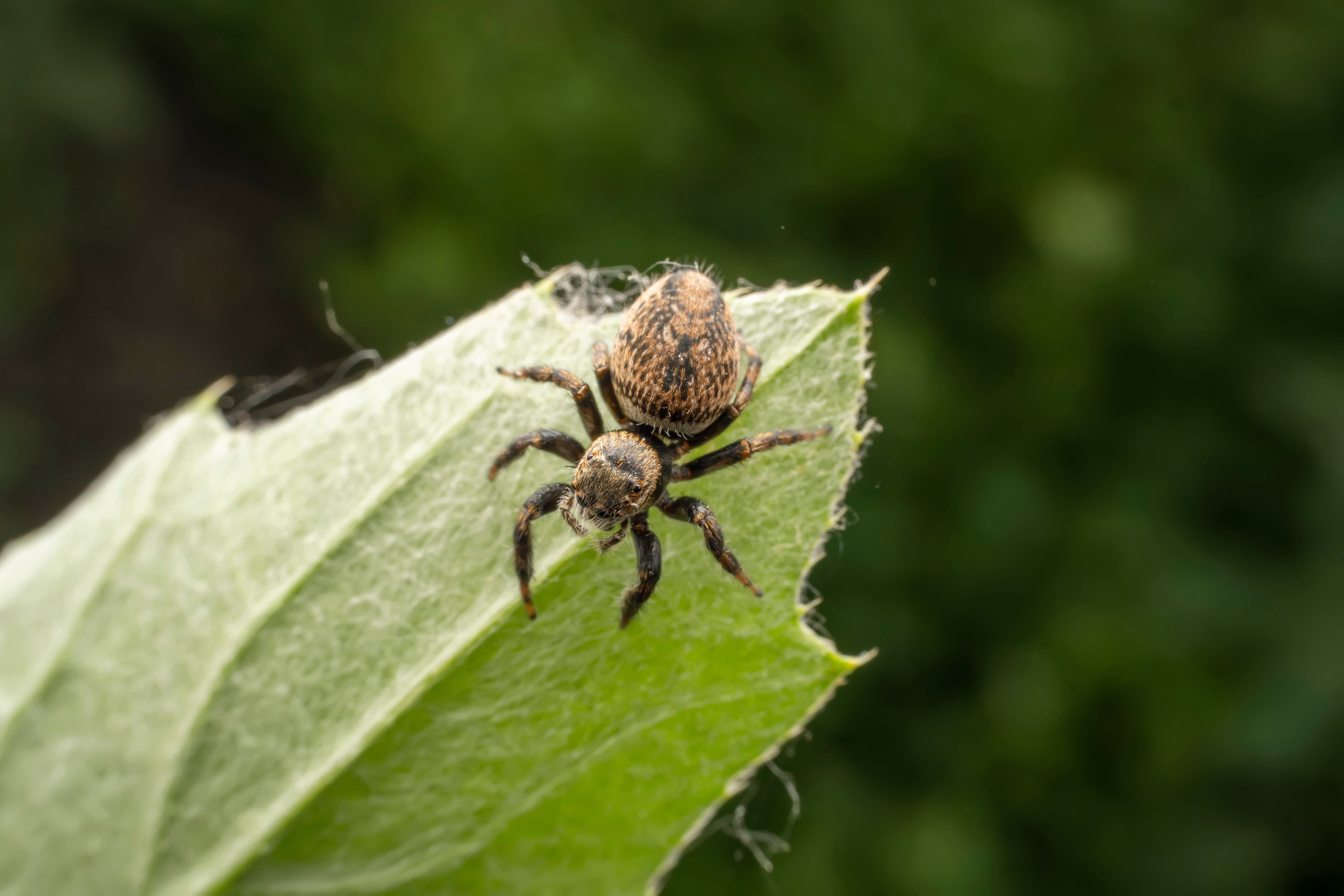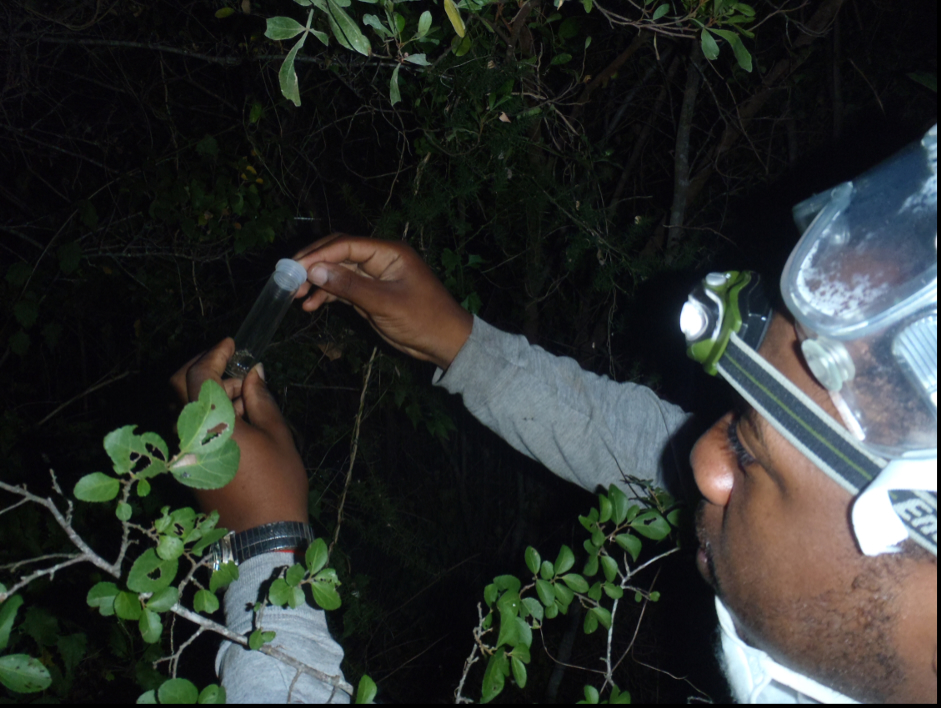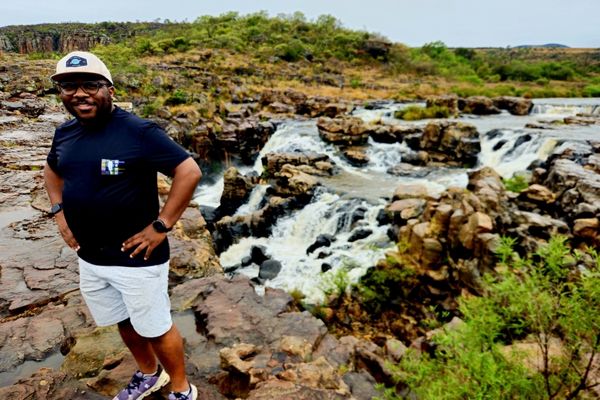Exploring Food Webs and Ecosystem Health: A Q&A with Dr. Sydney Moyo
February 20, 2025

– Picture Source: Adobe Stock Image
Ecosystems are intricate networks of interactions, with plants, animals, and environmental factors constantly shaping one another. Understanding these relationships is crucial for preserving biodiversity and mitigating human impact on the natural world. Dr. Sydney Moyo, an Assistant Professor of Biological Sciences at LSU, is at the forefront of this effort. As a community ecologist, his research focuses on food web dynamics, using innovative biochemical tools to study how species respond to environmental stressors and restoration efforts.
In this Q&A, Dr. Moyo shares his inspirations, research journey, and aspirations for the future.
- What inspired you to pursue a career in science?
I was born in Zimbabwe, where my grandfather’s love for nature sparked my curiosity about the environment. Growing up surrounded by diverse ecosystems (from vast savannas to winding rivers and towering mountains), I became fascinated by how species interact. This passion led me to study ecology. Meeting a Canadian professor on a research trip to South Africa encouraged me to pursue graduate school, and I guess after that, I never left. - What is your research "superpower"?
I would say my research superpower is my ability to bridge different fields—combining biogeochemical tracers, food web ecology, and modeling to answer big-picture ecological questions. I can integrate multiple approaches to tackle complex problems, which allows me to explore energy flow and nutrient cycling in ecosystems in a unique way.

Dr. Moyo conducting fieldwork and collecting samples.
- Can you share more about your research and the focus of your work?
I am an ecologist who studies the interactions between plants and animals and how the environment shapes these interactions. The interaction I focus on is ‘what or where animals eat.’ I consider this by collecting animals (e.g., spiders) and plants across space (different sites in rivers) and time (over multiple years) to explore food web connections among organisms. My work uses dietary tracers that are based on the principle that an organism’s tissue closely matches what it eats (you are what and where you eat). My research spans rivers to salt marshes, with projects exploring how anthropogenic disturbances and climate change affect ecosystem health. - Are there any challenges you have encountered in your most recent project?
One of the biggest challenges in my research has been figuring out the best way to preserve biological samples for fatty acid and stable isotope analysis. We’re testing different methods and should have a solid protocol by spring. This will help ensure accurate data on high-quality lipids (HUFAs) in food webs, which is key to understanding ecosystem health and productivity. - Was there a turning point or defining moment that shaped your perspective as a scientist?
A big turning point for me was realizing how powerful interdisciplinary research can be. Early on, I was all about stable isotopes, but once I started adding fatty acids and modeling into the mix, I saw just how much more I could uncover about energy flow in ecosystems. That shift completely changed my perspective and allowed me to dive into bigger, more exciting questions about food webs. - What does a typical day look like for you?
No two days are the same! Some days, I’m out in the field collecting samples from rivers; others, I’m in the lab analyzing fatty acids. I spend a lot of time writing—grants, manuscripts, student feedback—you name it. Teaching keeps me busy, too. And, of course, somewhere in between, I have to pick up my kids from school! - What are your long-term goals and aspirations for your research and career?
I want to build a nationally competitive research lab that advances our understanding of how ecosystems are connected through energy flow. My long-term goal is to develop predictive models that can inform conservation and management decisions, particularly in the face of climate change and human disturbances. I also want to train the next generation of ecologists, equipping them with the skills to tackle pressing environmental challenges. - If you could tell your younger self one thing, what would it be?
Don’t be afraid to take risks and explore new methods. Collaboration is everything—science is a team effort, and working with others may save you the trouble of figuring out something someone has already been doing for decades. - Within your career, what have been some of the best lessons learned?
One of my biggest lessons is that failure is just part of the process. Rejected grants and manuscripts can be frustrating, but every setback is a chance to refine ideas and try again. Science is all about persistence. Mentorship matters, too—having great mentors and being one can make all the difference. And most importantly, never be too proud to ask for help.

Dr. Moyo exploring a new place and enjoying breathtaking landscape.
- Tell us what you like to do when you aren’t working on research.
When I’m not in the lab or field, I love spending time outdoors with my wife and two kids. I’m an avid cyclist, so I spend a lot of time on my bike. While I’m not the best at it, I do enjoy cooking. And when the opportunity arises, I’m always up for traveling to new places to experience different cultures and landscapes.
Don’t be afraid to take risks and explore new methods. Collaboration is everything—science is a team effort, and working with others may save you the trouble of figuring out something someone has already been doing for decades.
Dr. Sydney Moyo’s passion for ecology and interdisciplinary research is shaping a better understanding of how ecosystems function, particularly in the face of environmental changes. His work not only contributes to the scientific community but also informs conservation efforts that have a real-world impact. By bridging multiple fields and mentoring future ecologists, Dr. Moyo continues to push the boundaries of ecological research, ensuring that the next generation is well-equipped to tackle the environmental challenges of the future.